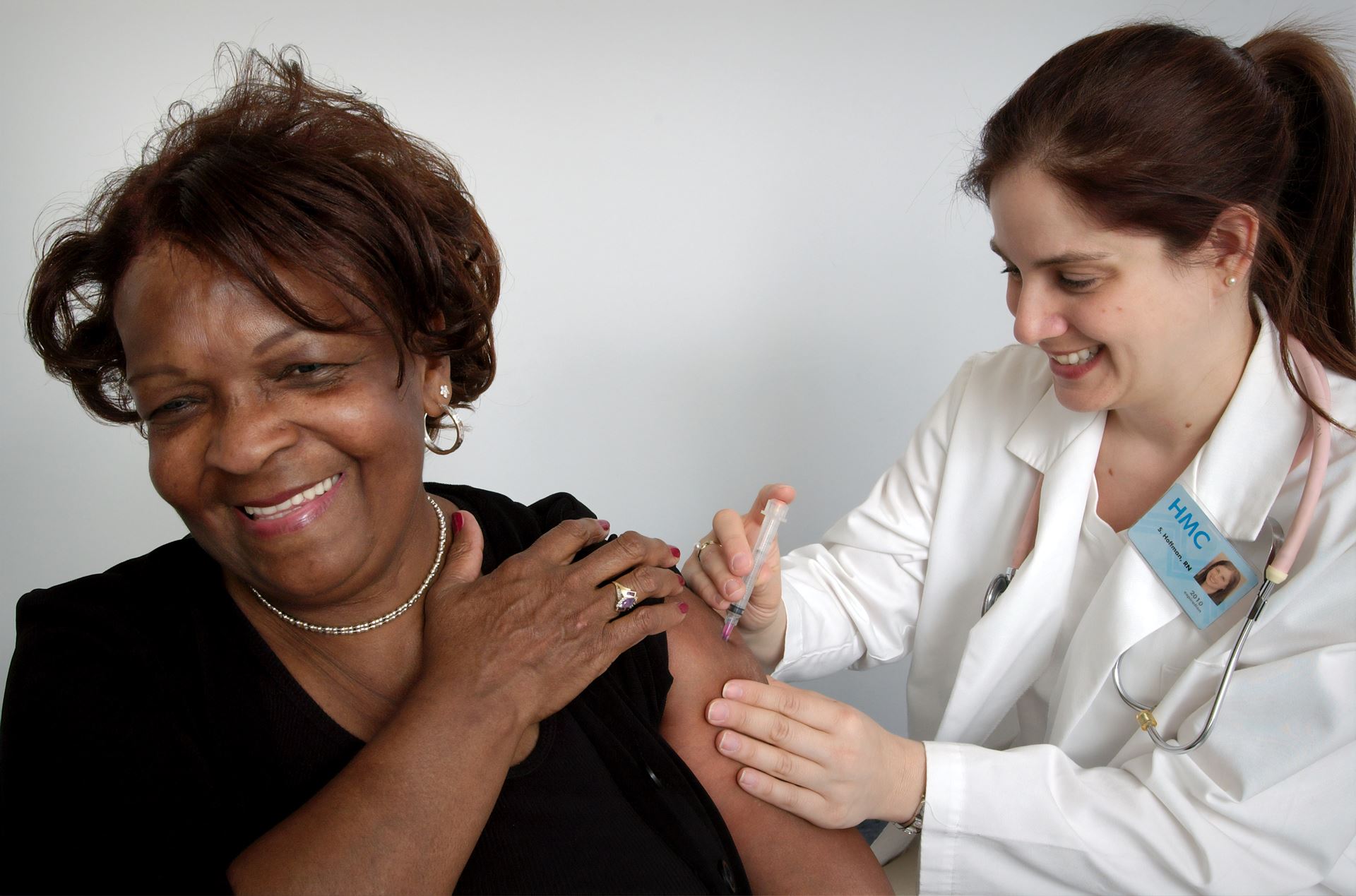Immunisations
Flu Vaccine
Flu can be very serious. Like COVID-19, it is caused by a virus, which is spread by coughs and sneezes. Symptoms of flu can be mild, but can also lead to more serious illnesses such as bronchitis and pneumonia, which may need treatment in hospital.
Flu is very infectious, and symptoms can come on very quickly. Symptoms of flu include a high temperature, tiredness and weakness, headache, aches and pains and a cough. More information about flu is available from: NHS 111 Wales - Health A-Z : Flu (external site)
There are outbreaks of flu most winters, especially in hospitals and care homes.
In a normal winter, thousands of people will die from flu-related illnesses in the UK. Having a flu vaccine every year is one of the best ways to protect against flu. The flu vaccine campaign will restart in Autumn 2024
Flu is more likely to be serious if you have a long term health condition, are pregnant, or are older. The people at high risk of COVID-19 are generally the same people at increased risk of becoming very ill with flu.
Flu can also be serious for young children
For more information visit;
Eligibility for the vaccine - Public Health Wales (nhs.wales)

Do I Need To Be Protected Against Pneumococcal Infection?
Pneumococcal infection is caused by pneumococcal bacteria (Streptococcus pneumoniae) and can cause serious illnesses, such as sepsis and meningitis.
Some individuals carry pneumococcal bacteria in the back of their nose and throat and can pass them around by coughing, sneezing, and close contact. Usually, this doesn’t result in serious illness, but it can lead to pneumococcal infection, including pneumococcal meningitis.
People aged 65 or over and individuals with certain health conditions have a higher chance of becoming unwell with pneumococcal infection. They are more likely to suffer serious long-term health problems from pneumococcal infection and can even die. These groups are offered a pneumococcal vaccination on the NHS. It's a safe vaccine that can help prevent some of the serious types of pneumococcal infections.
If you think you are eligible and have not previously received the vaccine, please contact the practice to discuss with a nurse.
For more information visit;
Pneumococcal polysaccharide vaccine (PPV) (23 serotypes) - Public Health Wales (nhs.wales)
Shingles Vaccine
Shingles (herpes zoster) is caused by the varicella zoster virus, the same virus which causes chickenpox.
Shingles is caused when a nerve and the area of skin around it becomes re-infected by the virus, resulting in clusters of painful, itchy, fluid-filled blisters. The fluid from these blisters can spread chickenpox to those who have not had it.
If you have shingles, try to avoid:
- pregnant women who have not had chickenpox before
- people with a weakened immune system (for example, people having chemotherapy), and
- babies less than one month old – unless it's your own baby, as they should be protected from the virus by your immune system.
Shingles is more common in adults aged over 70.
Each year a number of people aged 65 and over are admitted to hospital with shingles in Wales.
The shingles vaccine helps to protect you by boosting your immunity and reducing your risk of getting shingles. If you do go on to have shingles, your symptoms may be milder and the illness shorter.
The eligibility for the new NON-LIVE shingles vaccine changed in September 2023. Currently all patients aged 70-79 remain eligible, please book an appointment if you have not already received the vaccine. Eligibility is gradually being extended to all patients aged 65 years and over, the GP practice will contact you .
All patients with a severely weakened immune system are eligible from 50 years of age, please contact the surgery if you think this applies to you.
For more information, please visit;
Covid-19 Vaccine
This vaccination programme is delivered by the health board via the Mass Vaccination Centres (MVC's). Practices are asked annually if they are able to participate in delivering the vaccine, and the vaccination team decides what cohort of patients we can vaccinate. We are proactive in inviting these patients, by phone and letter, you do not need to get in touch with us.
Wales is following the Joint Committee on Vaccination and Immunisation (JCVI) advice on who is eligible for COVID-19 vaccinations. This advice is based on evidence on who is most at risk of serious illness and death from COVID-19.
The JCVI have said that a COVID-19 spring vaccine should be offered to:
- people aged 75 and older;
- residents in care homes for older people; and
- those aged six months and over who have a weakened immune system.
People at highest risk of serious illness from COVID-19 infection will be offered a vaccination between April and June. We recommend that you have your vaccination as soon as it is offered to you.
This offer of a spring dose will end on 30 June 2024.
For more information visit;
Eligibility for the vaccine - Public Health Wales (nhs.wales)
Page created: 16 December 2022